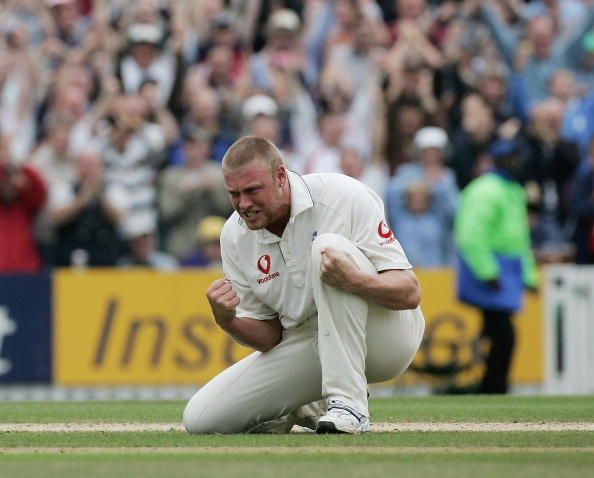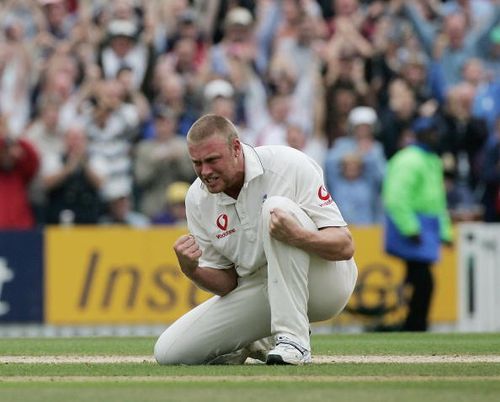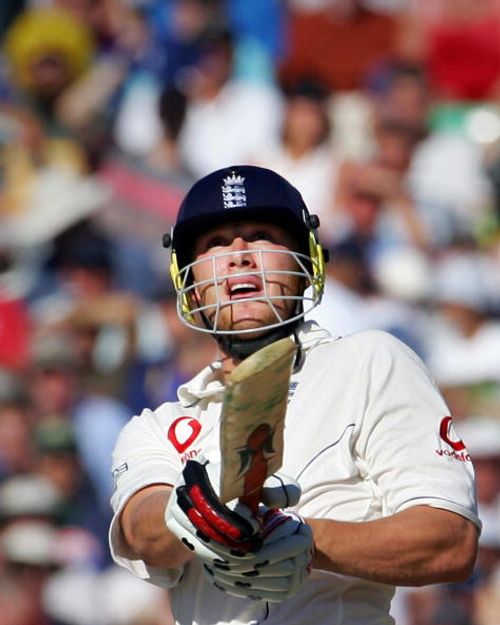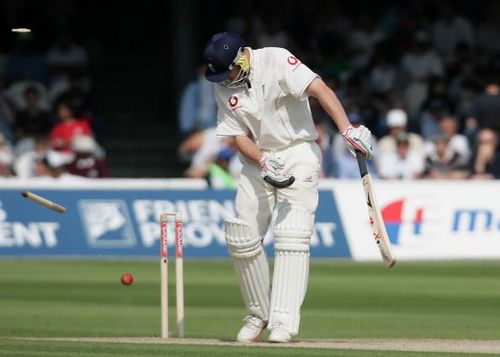
The Ashes Legends: Andrew Flintoff - The people's champion

Andrew Flintoff
“The eyes behind the glasses tell a thousand stories”, a bleary-eyed, stuttering Andrew Flintoff reasoned with an amused David Gower amidst raucous cheering from thousands of English supporters.
It is unusual for the football-crazy nation to come out in numbers and celebrate a victory of its cricket team in a bilateral Test series at the Trafalgar square. Certainly it is unusual for the uptight English fans to cheer on a drunken man who (as the legend goes) didn’t think twice before relieving himself in the rose bushes at 10 Downing Street.
But then it’s not everyday that the course of history is altered by the efforts of a single man. And that man was, after all, the people’s champion who played for the galleries, a showman who made the British fans lose their stiff upper lip and roar every time he stepped on the field.
For those who judge by numbers, Flintoff will always be an underachiever. A couple of decades later he might even be known as a television superstar who once played cricket for a living.
But then, how can one quantify the contributions of a man who, almost single-handedly, over one glorious summer, breathed life into the oldest rivalry in cricket which, for over a decade and a half looked increasingly embarrassing for the nation where the game originated?
For those who saw the burly all-rounder give his all on the field during the 2005 Ashes series, he was the nearest thing to the Ian Botham of 1981.
When he had a bat in hand, he was bludgeoning, using his naturally aggressive approach to combat the famed Australian attack.
 When he got the ball he didn’t want it to be taken away, exploiting reverse swing to the hilt to trouble the star-studded Aussie lineup.
When he got the ball he didn’t want it to be taken away, exploiting reverse swing to the hilt to trouble the star-studded Aussie lineup.
First the context. Before the 2005 series, England had last claimed the urn in 1987. For eight consecutive Ashes series in 18 years, the Englishmen had just made up the numbers in the rivalry.
The Australians were at their zenith during that period and produced champion cricketers at will, who dutifully turned up for the biennial Pommie-thrashing event. A whole generation had grown up wondering if England would ever be able to regain the Ashes.
This time though England had assembled a good squad and there was hope for an evenly contested Ashes. In Michael Vaughan they had a calm and able leader. In Marcus Trescothick and Andrew Strauss they had two aggressive openers. In Kevin Pietersen they had a rare flamboyant English batsman. In Steve Harmison and Matthew Hoggard they had two skilled new ball bowlers. And they had Flintoff.
The start of the series lived up to its hype as Harmison delivered the opening punches but Australia, staying true to their world champion tag, fought back to go one up in the series. The English hopes, like in the eight previous Ashes series, began to fade and it seemed the usual Australia-beat-England routine would ensue.

Flintoff didn’t have a great start to the Ashes
Flintoff’s own performance was dismal as he picked up four wickets wickets at a very expensive rate and managed just three runs in two innings. Then Edgbaston happened.
Considered one of the greatest Tests of all time, it produced drama of the highest order and after several twists and turns it reached its conclusion amidst barely manageable tension. And yes, it was here that Flintoff gained cult status.